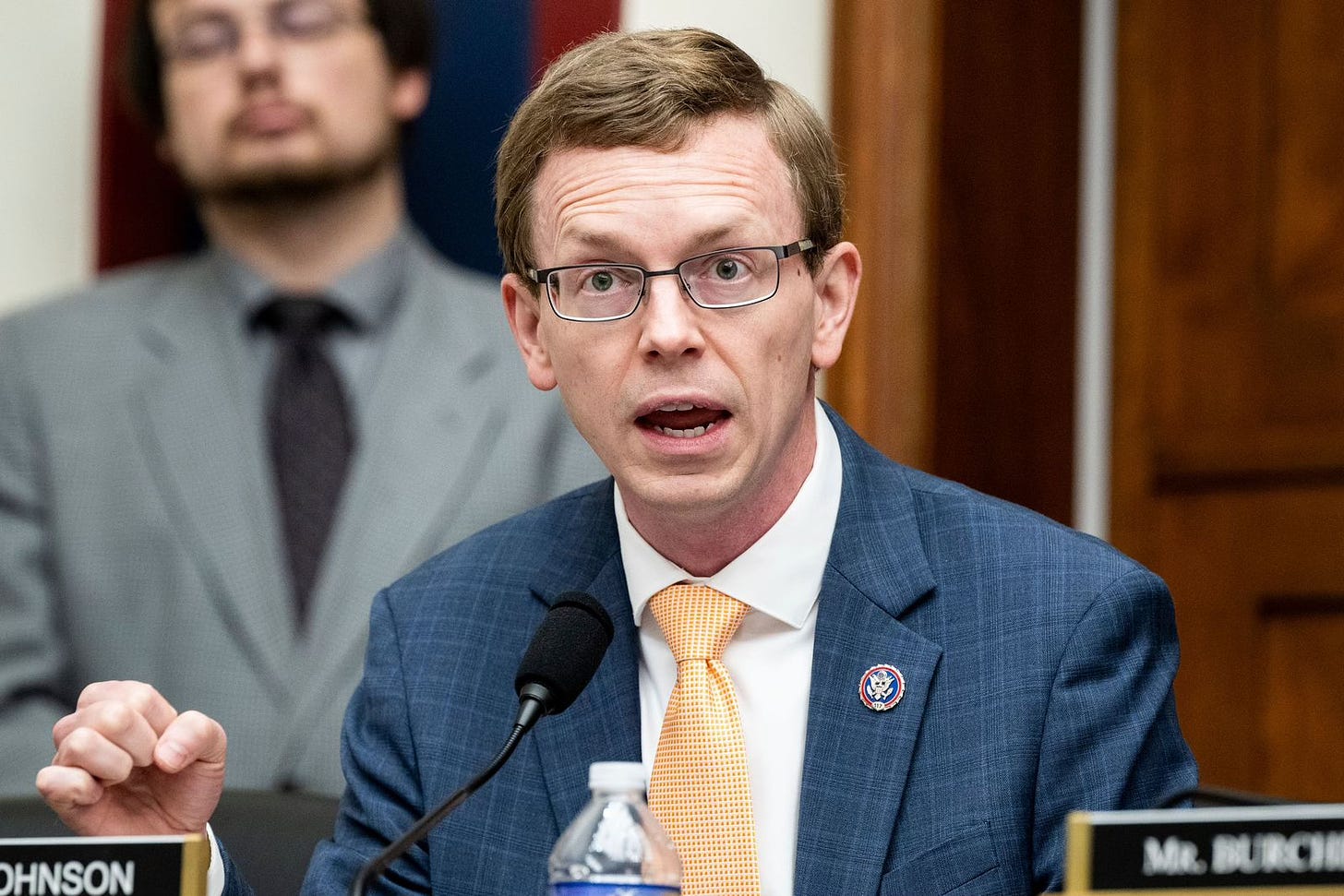Another Ally to Crypto Will Help Shape Crypto Legislation
Now that top Republican leadership has been settled, more assumptions can be made about committee chairs.
You are reading Unchained’s regulatory newsletter Unregulated, your go-to source for the latest insights, breaking scoops, and in-depth analysis on all things crypto regulation—one of the most critical topics in the industry today.
Note: If you prefer to keep receiving only our daily newsletter and to opt out of the regulatory updates, simply head to your Substack settings and uncheck the regulatory newsletter box.
Hey! I’m Veronica Irwin, Unchained’s regulatory reporter.
The biggest news in Washington last week didn’t have much directly to do with crypto. Republicans chose top congressional leadership positions like Speaker of the House (Mike Johnson) and Senate Majority Leader (John Thune), while Trump made a range of appointments and nominations from Chief of Staff to Attorney General. While the news was interesting to read about, those decisions were dictated more by other hot-button political issues than by crypto.
However, there is one important takeaway for the industry…
South Dakota Rep. Dusty Johnson Likely to Lead House Digital Assets Subcommittee
Under the House Agriculture Committee, this Subcommittee would workshop portions of market structure legislation.
South Dakota Republican Representative Dusty Johnson will likely lead the Subcommittee on Commodity Markets, Digital Assets, and Rural Development, a subset of the House Committee on Agriculture responsible for workshopping legislation on digital commodities exchanges. Johnson is expected to push for CFTC oversight in a crypto market structure bill, according to three sources active in crypto policy circles and connected to the GOP.
Johnson’s press team did not respond to requests for comment by press time.
Read More: Stand With Crypto Says These Races are Crucial for Crypto. But Why?
It had been rumored that Johnson, who is popular amongst fellow Republican lawmakers for his traditional GOP values, fundraising ability, and pragmatism, could have moved higher up in general Republican party leadership ahead of the national election. However, Johnson was a minor player last week while Republicans hashed out party leadership, and because Johsnon was the Subcommittee chair last session, it’s assumed that he will chair the subcommittee again. Sources say that committee leadership roles will likely be officially decided in early December.
This is great news for crypto, as Johnson was an architect of this year’s Financial Innovation and Technology for the 21st Century (FIT21) Act, a market structure bill that received bipartisan support in the House before stalling in the Senate. In the construction of the bill, Johnson is known to have pushed for CFTC oversight of crypto, particularly spot markets such on crypto exchanges like Coinbase, Kraken, Gemini and others, rather than giving this power to the SEC.
Read More: Elizabeth Warren Will Be the Top Democrat on the Senate Banking Committee
The bill was constructed in the House Agriculture Committee and House Financial Services Committee in tandem, and Johnson ultimately introduced the bill alongside Pennsylvania Republican Glenn “GT” Thompson and Arkansas Republican French Hill. Sources expect the bill to originate in these two House committees again in 2025, before moving on to review by the Senate Banking and Agriculture committees. Three sources who spoke with Unchained said they expected Johnson to prioritize CFTC oversight of crypto in a new market structure bill. Multiple reports have suggested that legislators will try to expand such a bill to cover more areas of crypto than FIT21, in part by giving more oversight power to the CFTC than to the SEC after Republicans won the presidency, House, and Senate. This is because while Republicans have historically advocated for more “light touch” legislation and for cryptocurrencies to be regulated as commodities, Democrats have by and large leaned toward more hands-on regulation, often by defining cryptocurrencies as securities.
Related stories from Unchained:





